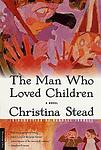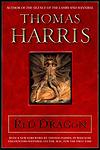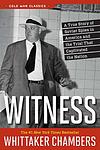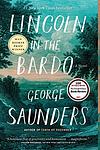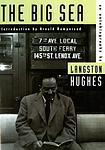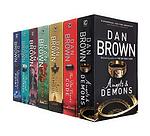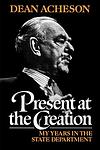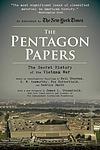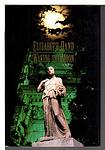The Greatest "Washington, D.C." Books of All Time
Click to learn how this list is calculated.
This list represents a comprehensive and trusted collection of the greatest books. Developed through a specialized algorithm, it brings together 284 'best of' book lists to form a definitive guide to the world's most acclaimed books. For those interested in how these books are chosen, additional details can be found on the rankings page.
Genres
The "Washington, D.C." category for books encompasses a diverse array of literature that is either set in, influenced by, or pertains to the capital city of the United States. This genre includes political thrillers that delve into the machinations of American governance, historical accounts detailing the city's evolution, and biographies of influential figures whose lives and careers were shaped by their time in the nation's capital. It also features non-fiction works exploring the city's unique cultural, social, and urban dynamics, as well as guidebooks for visitors. From the corridors of power on Capitol Hill to the vibrant streets of its various neighborhoods, books in the "Washington, D.C." category offer readers a window into the heart of American politics, policy, and history.
Countries
Date Range
Reading Statistics
Click the button below to see how many of these books you've read!
Download
If you're interested in downloading this list as a CSV file for use in a spreadsheet application, you can easily do so by clicking the button below. Please note that to ensure a manageable file size and faster download, the CSV will include details for only the first 500 books.
Download-
1. The Man Who Loved Children by Christina Stead
This novel explores the complex dynamics of the Pollit family, focusing on the relationship between the egotistical patriarch Sam and his idealistic daughter Louie. Set in Washington D.C. during the 1930s, the story provides a stark portrayal of a dysfunctional family, where Sam's delusional optimism and insensitivity clash with Louie's growing disillusionment and rebellion. The narrative delves into themes of family conflict, emotional abuse, and the struggle for individual identity within the confines of family expectations.
-
2. The Education of Henry Adams by Henry Adams
"The Education of Henry Adams" is an autobiographical account that explores the changes in society and politics during the 19th and 20th century from the perspective of an individual who is both a product and critic of that era. The narrative is structured around the author's self-perceived failure to understand or adapt to these changes, despite his privileged education and social status. The book is a reflection on the author's life, his attempts to make sense of the world around him, and his struggle to reconcile his traditional upbringing with the rapid advancements of the modern world.
-
3. All the President's Men by Bob Woodward, Carl Bernstein
"All the President's Men" is a non-fiction book that details the investigative journalism conducted by two reporters who uncover the details of the Watergate scandal that led to President Nixon's resignation. The book provides a detailed account of the reporters' struggles to uncover the truth, the obstacles they faced, their persistence, and the ultimate revelation of a political scandal that shook the United States.
-
4. Red Dragon by Thomas Harris
A former FBI profiler, who is renowned for capturing a notorious serial killer, is lured out of retirement to track down a new killer who has a taste for families. The new killer, dubbed "The Tooth Fairy", is a complex character with a troubled past that leads him to commit his heinous crimes. As the profiler delves deeper into the investigation, he is forced to confront his own demons and the manipulative games of the serial killer he previously captured, who is now behind bars.
-
5. Cane by Jean Toomer
"Cane" is a collection of vignettes and poems that depict the life of African-Americans in both the rural South and urban North during the early 20th century. The narrative explores themes of racial identity, cultural heritage, and the African-American experience, blending elements of fiction, poetry, and drama. The work is divided into three parts, with the first and third focusing on life in the rural South and the second part on life in the urban North.
-
6. The Manchurian Candidate by Richard Condon
The novel is a political thriller that delves into the dark world of espionage and brainwashing during the Cold War. It follows the story of a former prisoner of war who, upon returning to the United States, is hailed as a war hero. Unbeknownst to him and the public, he has been programmed by a foreign power to be an unwitting assassin. His conditioning is triggered by a complex set of stimuli, and he is directed to carry out a high-profile political assassination that could alter the course of history. As the plot unfolds, a fellow soldier begins to unravel the conspiracy, racing against time to prevent the programmed soldier from executing his deadly mission, which is orchestrated by a Communist conspiracy aiming to seize control of the American government.
-
7. Witness by Whittaker Chambers
"Witness" is a gripping autobiography that chronicles the author's life as a Communist party member, his espionage activities for the Soviet Union, and his eventual renunciation of communism. The book also details his role as the key witness in the 1948 Alger Hiss trial, a high-profile case that had a major impact on American politics during the Cold War. The narrative explores themes of ideology, betrayal, and redemption, and provides a unique perspective on the ideological battles of the 20th century.
-
8. The Armies of the Night by Norman Mailer
This book is a unique blend of historical fact and autobiographical fiction, providing a detailed account of the October 1967 March on the Pentagon. It describes the author's experiences during the anti-Vietnam War demonstrations, where he was arrested and spent the night in jail. The narrative explores the author's interactions with other protesters, his observations on the nature of political activism, and his personal reflections on the Vietnam War. It also delves into the author's struggles with his personal beliefs and his role as a public figure during this turbulent period in American history.
-
9. Team of Rivals: The Political Genius of Abraham Lincoln by Doris Kearns Goodwin
This book explores the political acumen of Abraham Lincoln, focusing on how he assembled his cabinet from political adversaries, many of whom initially dismissed him for his perceived lack of experience and ungainly appearance. The narrative delves into how Lincoln used his rivals' talents to navigate the tumultuous times of the Civil War, maintaining unity and leading the nation towards the abolition of slavery. It underscores Lincoln's extraordinary ability to turn rivals into allies, demonstrating his leadership and his profound impact on American history.
-
10. Truman by David McCullough
This biography offers an in-depth examination of the life and presidency of Harry S. Truman, the 33rd President of the United States. The book covers his humble beginnings in Missouri, his service in World War I, his political ascension, and his unexpected presidency following the death of Franklin D. Roosevelt. The narrative also delves into his controversial decisions such as the use of atomic bombs on Japan and his handling of the Cold War, providing a comprehensive and balanced view of Truman's leadership and legacy.
-
11. Lincoln in the Bardo by George Saunders
The novel is set in a graveyard over the course of a single night and is narrated by a dazzling chorus of voices. The story is centered around the death of President Lincoln's 11-year-old son Willie, who resides in the Bardo, a transitional state between life and rebirth in Tibetan tradition. As Willie interacts with the other spirits stuck in this realm, his father visits the crypt to mourn, causing a struggle among the ghosts over the boy's soul. The narrative explores themes of grief, the impermanence of life, and the unresolved issues that keep us from moving on.
-
12. In a Free State by V. S. Naipaul
"In a Free State" is a collection of three short stories and a prologue and epilogue, portraying the realities of post-colonial life and the struggles of individuals caught between their native culture and the imposed Western values. The narratives span across India, Egypt, Washington D.C., and Africa, each exploring the themes of displacement, identity crisis, and cultural conflict. The book provides a profound examination of the human condition, the concept of freedom, and the complexities of power dynamics in a post-colonial world.
-
13. Six Days Of The Condor by James Grady
In this espionage thriller, a CIA researcher who reads books to look for hidden messages returns from lunch to find all his coworkers murdered. Realizing he's now a target, he goes on the run, unsure of whom he can trust. Over the course of six tense days, he navigates a dangerous game of cat and mouse with his pursuers, using his intelligence and resourcefulness to stay one step ahead. As he seeks to uncover the reason behind the attack and who is responsible, he finds himself entangled in a deep conspiracy that reaches higher levels of power than he could have imagined.
-
14. Between the World and Me by Ta-Nehisi Coates
The book is a profound work that explores the concept of race in America through the lens of the author's personal experiences. It is written as a letter to the author's teenage son, offering him a stark portrayal of his place in a society that is marked by racial injustice. The narrative provides a deeply personal analysis of American history and its lasting impact on the African American community, with the author sharing his experiences of fear, violence, and struggle. It is an exploration of the physical and psychological impacts of being black in the United States, and a call for a deeper understanding of the nation's racial history.
-
15. The Big Sea by Langston Hughes
"The Big Sea" is an autobiography that explores the life of a significant figure in the Harlem Renaissance. The narrative follows his early life in the Midwest, his travels around the world as a seaman, and his experiences in New York during the 1920s, where he was a central figure in the Harlem Renaissance. Throughout the book, the author offers his observations on racism, class, and the creative process, providing a vivid and insightful portrait of a complex era in American history.
-
16. The Big Blowdown by George P. Pelecanos
"The Big Blowdown" is a gritty crime novel set in 1940s Washington, D.C. The story follows three childhood friends, Pete, Nick, and Joey, as they navigate the dangerous underbelly of their neighborhood. When Joey is brutally murdered, Pete and Nick are determined to find his killer and seek justice. As they delve deeper into the dark world of gangsters and corruption, they must confront their own demons and make difficult choices that will test their loyalty and friendship. With its vivid portrayal of post-war America and its compelling characters, "The Big Blowdown" is a gripping tale of crime, redemption, and the power of friendship.
-
17. The Age of Jackson by Arthur M. Schlesinger, Jr
This book provides an in-depth historical analysis of the political and social changes during the era of Andrew Jackson's presidency in the United States. It explores the significant events, policies, and ideologies of the time, including the rise of the Democratic Party, the influence of the "common man" in politics, and the controversial Indian Removal Act. The book also delves into the economic shifts of the period, such as the battle over the Second Bank of the United States, providing a comprehensive overview of this transformative era in American history.
-
18. The Lost Symbol by Dan Brown
In this thriller, the protagonist, a Harvard symbologist, is summoned to Washington D.C. to decipher a complex code linked to the Freemasons. His mentor's kidnapping propels him on a frantic chase through the hidden chambers, temples, and tunnels of the U.S. Capitol. Alongside a cryptologist, he unravels clues that must be solved to prevent a national catastrophe. The narrative weaves together secret societies, ancient wisdom, and a controversial scientific theory, culminating in a revelation that challenges the protagonist's understanding of the world.
-
19. Present at the Creation by Dean Acheson
This memoir offers an in-depth examination of American diplomacy and foreign policy during the early Cold War era. Penned by a former Secretary of State, it provides first-hand accounts of significant historical events like the Marshall Plan, the formation of NATO, and the Korean War. It not only provides a detailed account of the author's time in office but also offers his insights and perspectives on the geopolitical shifts of the time, making it a valuable resource for understanding the complexities of international relations during a critical period in world history.
-
20. Thirty Years As A Slave And Four Years In The White House by Elizabeth Keckley
This memoir offers a poignant and powerful account of an African American woman's life journey from the harsh realities of enslavement to her emancipation and subsequent role as a successful dressmaker and confidante to the First Lady of the United States during the Civil War era. The narrative provides a unique insider's perspective on daily life in the White House, as well as intimate observations of presidential family dynamics during one of the nation's most tumultuous periods. Her story is one of resilience and determination, highlighting the struggles and achievements of a woman who navigated the complex intersections of race, gender, and politics in 19th-century America.
-
21. The Pentagon Papers by New York Times
The book in question is a compilation of classified documents that were leaked to the press, revealing the inner workings and decision-making processes of the U.S. government regarding the Vietnam War. It exposes a series of governmental lies and cover-ups, showing that successive administrations had misled the public about the scale and purpose of American involvement in Vietnam. The release of these papers had significant implications for the relationship between the government and the media, sparking a fierce debate over the balance between national security and the right to know, and ultimately contributing to a shift in public opinion against the war.
-
22. Waking the Moon by Elizabeth Hand, Elisabeth Hand
"Waking the Moon" is a dark fantasy novel that follows the story of Sweeney Cassidy, a college student who becomes involved in a secret society dedicated to the worship of the Moon Goddess. As Sweeney delves deeper into the society's rituals and beliefs, she uncovers a sinister plot to awaken the goddess and unleash her power upon the world. With the help of her friends and a mysterious stranger, Sweeney must stop the society's plans before it's too late. The novel explores themes of power, feminism, and the dangers of blindly following tradition.
-
23. Foreign Affairs by Alison Lurie
This novel presents the intertwined stories of two American academics in London. Virginia Miner, a fifty-something, unmarried tenured professor, is in London for a six-month sabbatical to research children's folk rhymes. Despite her work, she increasingly finds herself drawn into a spiraling relationship with a young man from Oklahoma. In contrast, Fred Turner, a young assistant professor in the English department, leaves his wife and children behind in the States to conduct research on John Gay. He finds himself taken up by the very English and very upscale family of a fellow researcher. Their parallel experiences reflect their shared foreignness and alienation in the UK.
-
24. Daybook by Anne Truitt
"Daybook" is a reflective and intimate journal that provides a window into the thoughts and creative process of a renowned artist. The book chronicles her personal journey, exploring the challenges and triumphs she faces as she balances her roles as a mother, artist, and individual. Through her entries, the author delves into the depths of her artistic philosophy, the discipline required for her craft, and the profound insights she gains from her daily experiences. Her contemplative prose invites readers to consider the intersections of art, life, and the persistent quest for meaning and authenticity.
-
25. War and Remembrance by Herman Wouk
The novel is a historical saga that continues the story of an American family during World War II. It follows the naval career of one of the family members, his experiences in the Pacific, and his struggles with his marriage. Simultaneously, the narrative also focuses on the harrowing experiences of his Jewish relatives in Europe, who are caught in the horrors of the Holocaust. The novel provides a detailed account of the war on multiple fronts, both personal and political, and explores themes of love, loss, and the human capacity for survival.
Reading Statistics
Click the button below to see how many of these books you've read!
Download
If you're interested in downloading this list as a CSV file for use in a spreadsheet application, you can easily do so by clicking the button below. Please note that to ensure a manageable file size and faster download, the CSV will include details for only the first 500 books.
Download